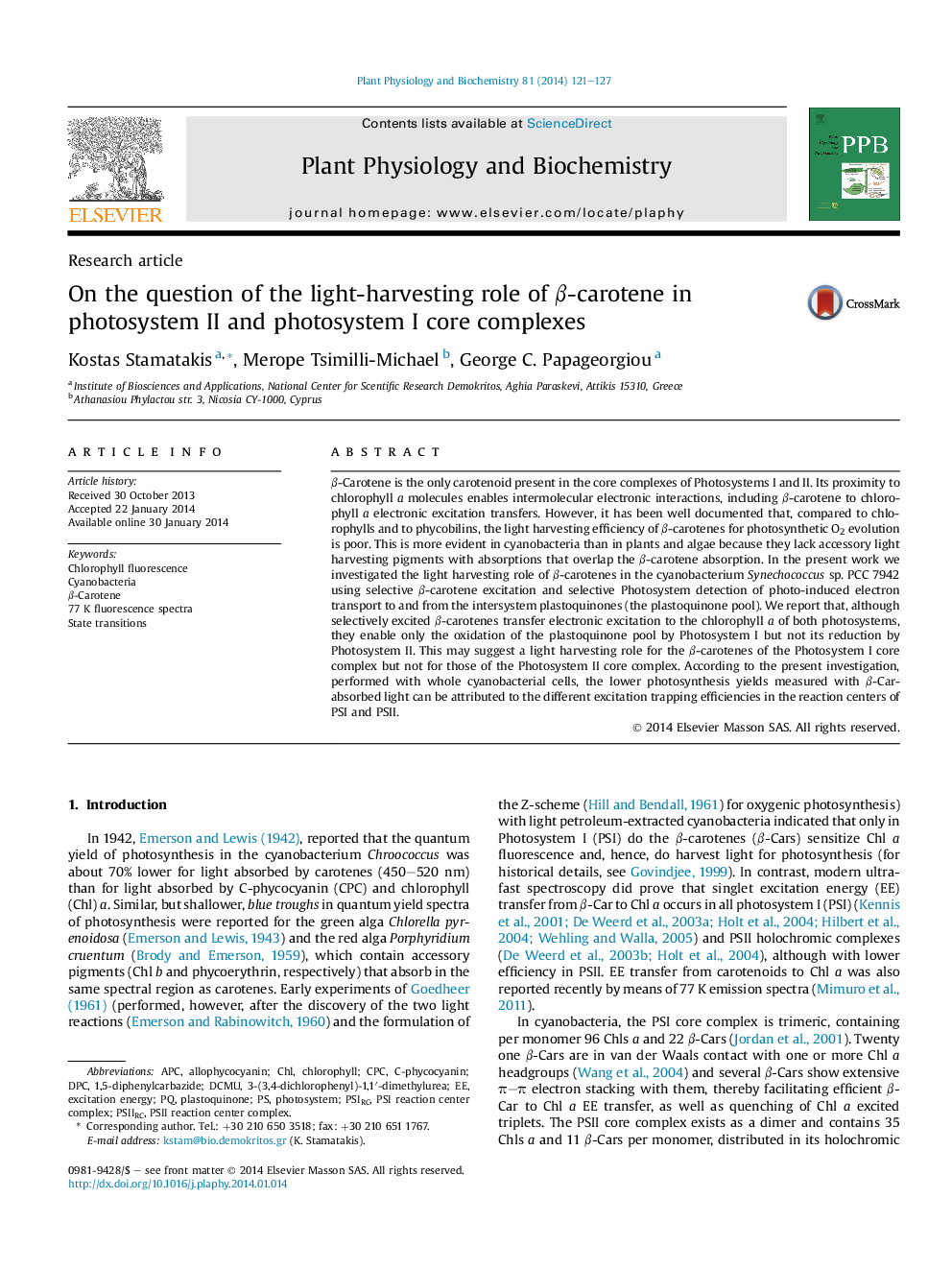| کد مقاله | کد نشریه | سال انتشار | مقاله انگلیسی | نسخه تمام متن |
|---|---|---|---|---|
| 2015855 | 1541940 | 2014 | 7 صفحه PDF | دانلود رایگان |

• Selective β-carotene excitation oxidizes intersystem plastoquinones.
• Selective β-carotene excitation does not move electrons across PSIIRC.
• Selective β-carotene excitation does move electron across PSIRC.
• Selective Chl a/phycobilin excitations move electrons across both photosystems.
• Only the PSI core complex β-carotenes do harvest light.
β-Carotene is the only carotenoid present in the core complexes of Photosystems I and II. Its proximity to chlorophyll a molecules enables intermolecular electronic interactions, including β-carotene to chlorophyll a electronic excitation transfers. However, it has been well documented that, compared to chlorophylls and to phycobilins, the light harvesting efficiency of β-carotenes for photosynthetic O2 evolution is poor. This is more evident in cyanobacteria than in plants and algae because they lack accessory light harvesting pigments with absorptions that overlap the β-carotene absorption. In the present work we investigated the light harvesting role of β-carotenes in the cyanobacterium Synechococcus sp. PCC 7942 using selective β-carotene excitation and selective Photosystem detection of photo-induced electron transport to and from the intersystem plastoquinones (the plastoquinone pool). We report that, although selectively excited β-carotenes transfer electronic excitation to the chlorophyll a of both photosystems, they enable only the oxidation of the plastoquinone pool by Photosystem I but not its reduction by Photosystem II. This may suggest a light harvesting role for the β-carotenes of the Photosystem I core complex but not for those of the Photosystem II core complex. According to the present investigation, performed with whole cyanobacterial cells, the lower photosynthesis yields measured with β-Car-absorbed light can be attributed to the different excitation trapping efficiencies in the reaction centers of PSI and PSII.
Journal: Plant Physiology and Biochemistry - Volume 81, August 2014, Pages 121–127